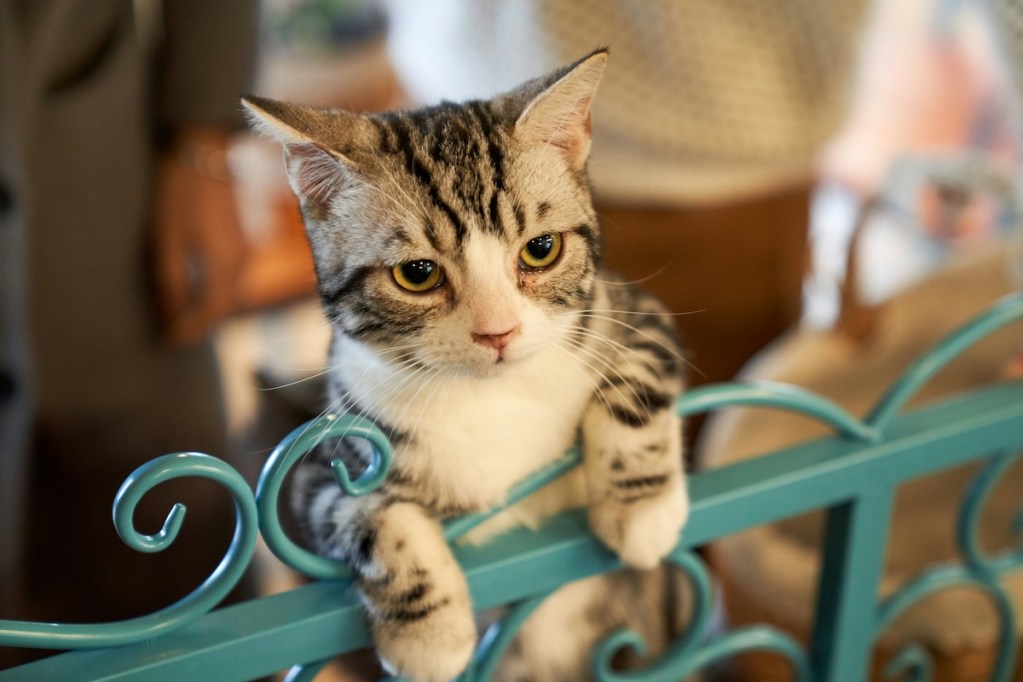
Cats have their share of quirks — from staring at you to inviting themselves to Zoom calls. Generally, cats poop in the litter box, though. Sure, you have a box of poop in your living space (hence the tongue-in-cheek viral meme about only getting a cat if you want a box of crap in your home). You also have to clean the box. However, your regular cat regularly goes in the box, and little housebreaking is needed.
When a cat starts pooping outside the litter box, you may find yourself concerned, frustrated, and wondering how to punish a cat for pooping outside the litter box. However, you’ll want to avoid punishing your cat and instead take a compassionate and curious approach. Here’s why and what to do instead.
How to punish a cat for pooping outside the litter box

Plot twist: Don’t punish a cat for pooping outside of the litter box. When a kitty starts having accidents, they are trying to tell you that something is up and they need your help solving the problem. These common reasons why cats poop outside of the litter box may help you shift your mindset from anger to concern and compassion:
- Illness, ranging from GI upset after ingesting a nontoxic food that is still causing discomfort to cancer
- Arthritis
- Stress
- Being asked to share a box with another cat
- Unclean or smelly litter box
- The litter box is too small
- Habitual
How to stop a cat from pooping outside the litter box

Let’s start with what not to do when you notice your cat is pooping outside of the litter box. Avoid rubbing their nose in the waste and screaming “no” or scolding them. While your frustrations are valid, you risk stressing the cat out (which will only exacerbate the issue if stress is the trigger). Also, put yourself in your pet’s paws: Your cat may be unwell, and you likely wouldn’t want your nose rubbed in poop and to get yelled at when sick. Here’s what to do instead:
- Ensure the box is clean. Life happens, and you may have forgotten to clean the box. Make the space tidy.
- Call the vet. If the cat poops outside of the litter box repeatedly over the next few days, give the vet a ring to rule out underlying conditions.
- Clean the area. Use a black light flashlight to ensure you get small, easy-to-miss traces of your cat’s pee and poop. Since cats have a keen sense of smell and use scent to mark territory, a thorough cleaning of the accident space is to prevent this behavior from becoming a habit.
- Size matters. Your cat should be able to turn around in their box comfortably.
- Be sure your cat has their own box. Have at least one box per cat.
- Move the box. If your cat has mobility issues, you may need to make the box more accessible. Keep the box in a quiet spot away from the cat’s food and water.
- Put obstacles in the way. Ensure the cat’s litter box is accessible, but block off the accident area with a gate or furniture to discourage repeat offenses.
- Wave the white flag. Your cat may have decided they want to use the facilities in a specific spot. If possible, put the box there — at least for now.
Final thoughts

Cats don’t poop outside of the litter box to spite us. Instead, they do so to raise a red flag that something is up, such as an underlying physical health condition or stress from a recent move. Avoid punishing your cat, such as by screaming at or crating them. This approach may only exacerbate the issue. Troubleshoot instead, such as calling the vet or moving the box to a quieter area.



